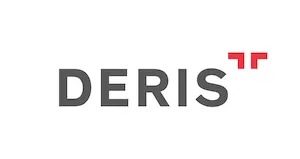FAQ:
- What are the Definitions of "Personal Data" and "Sensitive Personal Data"?
Which information is deemed within the scope of the personal data?
The newly enacted Law on Protection of Personal Data (Law) mainly aims to protect the privacy, rights, and freedoms of persons in connection with the processing of their personal data and accordingly defines personal data as any information relating to an identified or identifiable natural and legal person. The Law defines the "sensitive personal data", as the personal data revealing race, ethnic origin, political opinions, philosophical beliefs, religion, sect or other beliefs, appearance and dressing, foundation or union membership, health, sexual life, data on penal convictions or security measures, as well as biometric and genetic data of a person.
- What does "Data Processing" mean?
- Who takes a role in Data Processing?
- What are the Principles of Data Processing?
Personal data may be processed only if it is in compliance with the form and essentials of the Law on Personal Data Protection. The principles of data processing are that it must be;
- processed fairly and lawfully,
- accurate and up to date,
- processed for specified, explicit and legitimate purposes,
- adequate, relevant and not excessive in relation to the purposes for which they are proceeded,
- kept for the time stipulated by the law or for no longer than is necessary for the purposes for which they are further processed.
Personal data can only be processed if the data subject has unambiguously given his/her consent.
- What are the Conditions for Data Processing without Consent?
The consent of the data subject is not requested if the data processing is explicitly stipulated by Law. Furthermore, consent will not be required in cases where;
- it is necessary to protect the vital interests of the data subject or of another person where the data subject is physically or legally incapable of giving his consent,
- it is necessary for the concluding and performance of a contract to which the data subject is party,
- it is necessary for compliance with a legal obligation to which the controller is subject,
- the processing relates to data which are manifestly made public by the data subject,
- the processing is necessary for the establishment, use or protection of a right,
- the processing is necessary for the purposes of the legitimate interests pursued by the controller, provided that this does not damage the fundamental rights and freedoms of the data subject.
- How does the Processing of Sensitive Data occur?
The principles for the process of sensitive data has been defined widely and in detail when compared to the EU Directive 95/46, including data of dresses and appearance, biometric and genetic data and data relating to penal convictions or security measures, of the data subject.
The Law prohibits the processing of sensitive data without the explicit consent of the data subject. With the exception for the sensitive data on health and sexual life, no explicit consent of the data subject will be required if the sensitive data process is explicitly stipulated by law.
The data on health and sexual life can be processed without the consent of the data subject, if this is required for the purposes of protection of public health, preventive medicine, medical diagnosis, the implementation of care or treatment or the management of health-care services, planning and administration of health care financing. Such data can be processed only by competent bodies established by law or by persons having the professional obligation to secrecy.
Sensitive data shall be processed according to the adequate measures determined by the Personal Data Protection Board (Board).
- Is it Possible to Transfer Personal Data /Is it Possible to Transfer Personal Data Internationally?
Personal data can be transferred with the explicit consent of the data subject. The consent of the data subject is not sought in the existence of the conditions above mentioned for the processing of personal data and sensitive data. The Law also provides an exemption to the transfer of the data in case the country to which the data will be transferred ensures an adequate level of protection or, in the absence of adequate protection, the Board can permit such transfer, if the controllers in Turkey and the receiving country undertake to provide an adequate level of protection.
Personal data may be transferred outside Turkey, in cases where Turkey or the data subject might face a serious damage of interest and with the permission of the Board based on the opinion of the related governmental institution and organization without prejudice to the provisions of International Conventions to which Turkey is a party.
- What are the Obligations of the Data Controller?
The data controller or its representative is obliged to give the following information;
- the identity of the controller and of his representative, if any;
- purposes of the processing,
- information as to whom the processed data can be transferred and the purpose of the transfer,
- method to collect personal data and its legal basis,
- other rights of the data subject mentioned in the Law.
- What are the Rights of Data Subject (whose Personal Data is Processed)?
Every data subject has the right to:
- be informed whether or not data relating to him/her are being processed,
- request information concerning the process, if data has been processed,
- be informed of the purpose of processing and whether the data is used in line with its purposes,
- be informed about the third parties in receipt of the personal data in Turkey and abroad,
- request the rectification of the incomplete or inaccurate processed data,
- request the erasure or destruction of data,
- request the notification of third parties in case of rectification of the incomplete or inaccurate processed data and the erasure or destruction of data,
- object to the result obtained and analyzed by means of exclusively automated systems against his/her interest,
- request the compensation of the damages suffered as a result of an unlawful processing.
- What are the Obligations Related to Data Safety?
The data controller must take all necessary security measures in order to provide the adequate level of safety for;
- prevention of the unlawful process of personal data,
- prevention of unlawful access to the personal data,
- provision of the safeguarding of personal data.
The data controller is jointly liable with the natural or legal person who processed personal data on his behalf for taking the above mentioned security measures.
The data controller must conduct or must have conducted the necessary audits for the implementation of these provisions.
The data controller shall as soon as possible notify the data subject and the Authority, in case that the processed personal data is obtained unlawfully by a third party.
The Law requires every natural or legal person who processes personal data to register at the ‘data controller register’, unless they are exempt. This Register will be kept and maintained under the supervision of the Board.
- Is there any Regulatory Body which will Control the Processing of Personal Data?
The Law obliges a Personal Data Protection Authority (Authority) to be established for the implementation of the new regime. The Law also requires the establishment of a Personal Data Protection Board acting as the executive body, monitoring of the compliance of data processing and transferring actions. The Board is also empowered to evaluate the complaints of the data subject concerning the protection of his rights.
- What are the Crimes and Misdemeanors for Violation of the Law?
Crimes related to personal data are stipulated in the Turkish Criminal Law. The Law makes an amendment to Art. 243 of the Turkish Criminal Law and adds the provision that the act of unlawfully monitoring the internal data transfer in a data processing system and the data transfer between different data processing systems constitutes a crime, which is subject to an imprisonment from 1 to 3 years. For further criminal actions against data privacy, the Law refers to the articles in the Turkish Criminal Law wherein the sanction of illegal recording, transmitting, dissemination and acquiring of Personal Data is determined as imprisonment from 1 to 4 years.
Data controllers who fail to fulfill their obligations stipulated by Law will be charged to pay fines from TRY 5.000,00 to TRY 1.000.000,00. Sanctions for officials of the state institutions who fail to fulfill their obligation as a data controller will be punished according to the corresponding disciplinary regulations. The competent authority to impose these sanctions is the Board. Needless to say, these administrative decisions may be questioned before the administrative courts.
- When will these below listed Articles enter into force?
- The transfer of personal data
- Rights of data subject
- Application of data subject to the data controller
- Filing complaints before the Board
- The procedure and principals of the inspection conducted by the Board
- Data register
- Crimes and misdemeanors
The Articles of the Law relating to;
- The transfer of personal data,
- Rights of data subject,
- Application of data subject to the data controller,
- Filing complaints before the Board,
- The procedure and principals of the inspection conducted by the Board,
- Data register,
- Crimes and misdemeanors,
will enter into force after 6 months from the publication date (i.e. on October 07, 2016). Other Articles entered into force upon their publication (i.e. on April 07. 2016).



